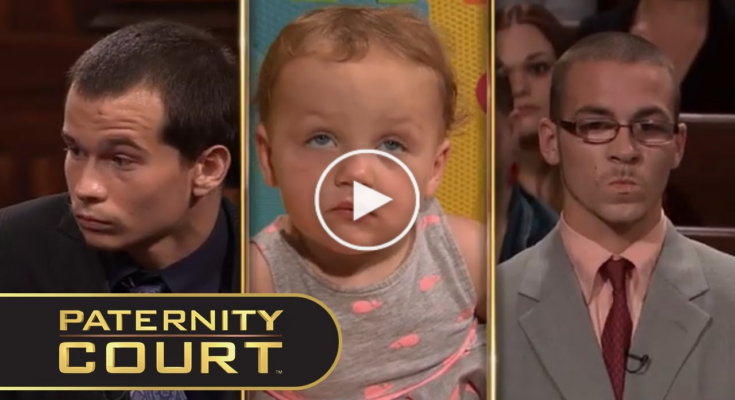In the case of Tinch v. Grubb and Boatwright, we delve into a poignant and emotional journey of young parenthood, paternity disputes, and the pursuit of reconciliation. This article explores the challenges faced by young parents, the importance of accepting responsibilities, the significance of paternity tests in determining biological relationships, and the impact of reconciliation on the lives of all parties involved.
At the heart of the case lies Mr. Tinch’s doubt regarding his paternity of one-year-old Nadaly. He expresses his uncertainty, stating, “I believe the baby isn’t mine because she has none of my features.” This doubt stems from Nadaly’s physical dissimilarity to him, with her blonde hair and blue eyes.
Ms. Grubb, the mother, counters, “The only reason Mr. Tinch is denying your daughter is because he’s afraid to grow up.” Her statement highlights the challenges young parents face when confronted with the immense responsibility of raising a child. The struggle to balance youthfulness and parental duties often leads to doubts and insecurities.
Adding complexity to the case, Mr. Boatwright, a potential second father, steps forward. The court learns that during a week when Mr. Tinch and Ms. Grubb were experiencing relationship problems, she had visited Mr. Boatwright and later admitted to kissing him.
Revealing his thoughts during that time, Mr. Tinch says, “Something about the doctor’s appointment made me doubtful… I don’t know what was going through his mind, I don’t know if it was the hoes that he was cheating on me with.” These doubts intensify the emotional turmoil within the case, highlighting the fragility of trust in relationships.
The court recognizes that young parenthood is a daunting responsibility for both parties. Judge Lake emphasizes, “You’re 18 with a four-year-old and a one-year-old. All this responsibility, and yet paternity is still in doubt.” The judge’s words underscore the importance of embracing parental responsibilities despite their age.
Both Mr. Tinch and Ms. Grubb acknowledge their youth as a factor in their actions. Mr. Tinch admits, “I was young, I admit it.” However, the judge urges them to overcome their fear and commit to their roles as parents. “You done jumped in the river, you got to learn to swim,” Judge Lake advises, encouraging them to rise above their insecurities.
To resolve the paternity dispute, the court orders a DNA test. The results confirm Mr. Tinch as Nadaly’s biological father, putting his doubts to rest. “Feels good. Feels really good. I don’t feel heartbroken no more,” Mr. Tinch admits, expressing relief and a newfound sense of clarity.
Ms. Grubb, who always believed Mr. Tinch was the father, shares, “I’ve always known it was his baby, but I’m glad that it comes to rest to him that it is his daughter.” The paternity test brings closure and paves the way for reconciliation, allowing them to move forward with certainty.
With paternity confirmed, the young parents express their desire to mend their relationship. Mr. Tinch apologizes for his doubts, and Ms. Grubb responds, “It’s okay. I’m sorry for putting you through all that stress.” This newfound understanding opens the door to potential co-parenting and support for Nadaly.
Judge Lake stresses the significance of reconciliation, urging them to “come together, see Nadaly, help each other out, and get to know her.” The courtroom audience applauds the potential for healing and growth, as the young parents embrace their responsibilities and the love for their daughter.
The case of Tinch v. Grubb and Boatwright exemplifies the complexities of young parenthood, doubts, and the pursuit of reconciliation. Paternity tests play a crucial role in providing clarity and closure to emotionally charged situations. As a society, it is essential to support young parents, encouraging them to embrace their responsibilities and nurture strong familial bonds.
The journey of parenthood is not without its challenges, but through communication, understanding, and acceptance of responsibilities, young parents can foster a supportive environment for their children’s growth and development. Tinch v. Grubb and Boatwright serves as a reminder of the significance of family, forgiveness, and moving forward together on the path of parenthood.
As Mr. Tinch and Ms. Grubb embark on their journey as co-parents, they find solace in the paternity test results and the opportunity to build a meaningful relationship with Nadaly. The case highlights the transformative power of reconciliation, teaching us the importance of communication, responsibility, and forgiveness in the journey of parenthood. By nurturing a loving and supportive environment, young parents can create a brighter future for themselves and their children.



